Best Keto Supplements: The Ones You Want (and Some You Can Skip)

- Just because you’re eating keto diet foods doesn’t mean you have everything you need. The right keto supplements can help your body function optimally and fill in any gaps.
- Electrolytes, ketone supplements, specific vitamins and mitochondrial enhancers can help you maintain your energy levels and avoid the side-effects of ketosis (like the keto-flu).
- For the brain-powering, fat-burning energy you need when you’re in ketosis, Bulletproof Brain Octane C8 MCT Oil delivers. Find out why below.
The ketogenic diet is a powerful tool to burn fat, optimize brain power and curb cravings. You get these health benefits because your body runs differently on keto. Because you’re burning fat instead of carbs for energy, you may have different nutritional needs. Keto supplements can help fill in the gaps in your diet. Here are the best keto supplements to try, plus two you can skip.
What are keto supplements?
“What supplements should I take on keto?” is a common question asked by those switching to a fat-fueled lifestyle. It depends on your goals, but there are a few popular choices, such as electrolytes, folate, MCT oil and oxaloacetate. Since keto cuts out so many different foods, taking supplements can be a great way to ensure your body gets what it needs to function efficiently.
Think of keto supplements as ways to further support your diet. They vary in function, from boosting your ketone production to providing you with essential nutrients that you might be missing out on.
Do keto supplements work?
It all depends on what you mean by “work.” If you’re not losing weight on keto, you might be disappointed if you expect supplements to turn your body into a fat-burning superstar. However, in terms of maintaining overall health, streamlining your body’s functioning without worrying about missing out on necessary nutrients and encouraging the proper internal environment for burning ketones as fuel, then yes, they do work.
Adding supplements to your daily regimen won’t necessarily transform you into a ketone-producing powerhouse, but a few simple ones can make sure you’re functioning at peak efficiency, not missing anything vital in your diet and making the best use out of the foods you do consume. Now, let’s take a closer look at which supplements to take on keto.
6 best keto supplements to level up the keto diet
Which keto diet supplements should you add to your stack? The six outlined below are particularly valuable when you’re on any type of high-fat, low-carb diet, including cyclical keto (also called carb cycling), targeted keto or the traditional version.
While these are the best ketone supplements, there are certainly others you can try, too. Just make sure to talk to your doctor before you start supplementing with something new.
1. Brain Octane MCT Oil
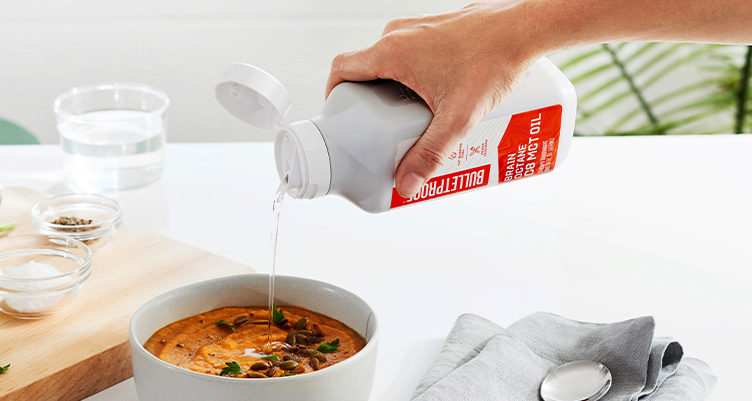
“MCT” stands for “medium-chain triglyceride.” MCT oil is a quality fat made from coconuts. And as far as ketogenic supplements go, Bulletproof Brain Octane C8 MCT Oil is one of the best ways to get even deeper into ketosis.
It only takes a few steps for your body to turn MCT oil into ketone energy for your cells.[1] On the keto diet, you want to maintain ketone levels to stay in a fat-burning state and reap all those ketosis benefits, like fewer cravings and amplified brain power.[2] [3] [4] And if you want better results at the gym, research shows that MCT oil may even boost your athletic performance.[5]
Look for an MCT oil that is 100% pure caprylic acid (C8), like Brain Octane C8 MCT Oil. C8 is the all-around best MCT oil for ketogenic energy. The graph below shows how much more Brain Octane MCT oil increases ketone levels, compared to other brands of MCT oil and coconut oil:
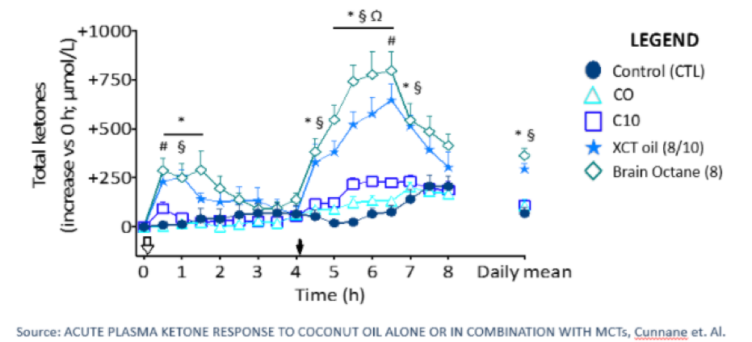
Related: What Makes Bulletproof MCT Oils Different?
Not all MCT oils are the same. Some products contain additives that won’t give you the same ketone boost, or they mostly consist of coconut oil, which your body doesn’t even treat like an MCT. Get the details on different types of MCTs here.
You want to start with just 1 teaspoon when you begin using MCT oil. Brain Octane MCT Oil is unflavored, so you won’t notice it when you add it to drinks and meals throughout the day. Try it in Bulletproof Coffee or a smoothie in the morning, use it to make a keto-friendly salad dressing at lunch and drizzle it over a steak for dinner.
The bottom line: MCT oil is great for keto, but not all MCTs are the same. To give your body the fastest access to ketogenic energy, choose a supplement with pure C8 (caprylic acid) MCT oil like Brain Octane C8 MCT Oil.
2. Keto electrolyte supplements
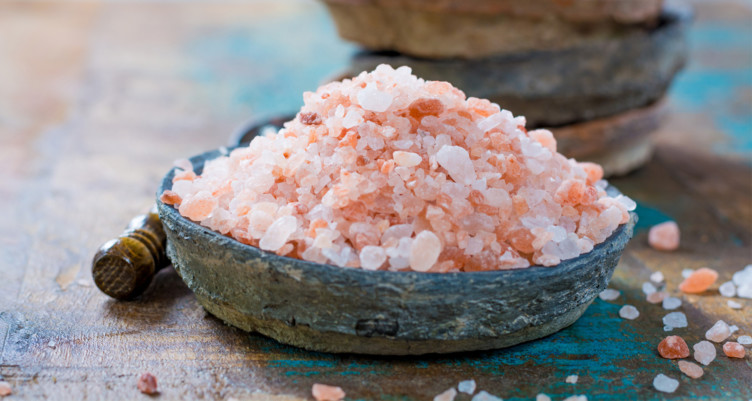
When you’re on a high-carb diet, your body stores sugar in the form of glycogen. Your glycogen stores are energy reserves. When you do something particularly taxing or go a few hours without eating, you’ll start to burn your glycogen stores for fuel.
Things are different when you’re on a keto diet. You aren’t regularly eating carbs or sugar, which means you get really low on glycogen stores. So when your body’s energy levels are low, you burn fat for energy instead.
Here’s where it’s important to understand electrolytes and keto. Your body needs a lot of water to store glycogen, which is why you lose several pounds of water weight in your first few days in ketosis. You’re emptying your glycogen stores and getting rid of the water that goes with them. As you lose water, your kidneys excrete electrolytes (sodium, potassium and magnesium) to keep your system in balance.
Once you’re in ketosis, you continue to excrete electrolytes. That can lead to sodium, potassium and magnesium deficiencies, as well as muscle cramps and headaches.[6]
To prevent these side effects of ketosis and ensure a good source of electrolytes on keto, supplements can be useful. While it’s best to get your nutrition from whole foods, electrolyte supplements on keto can also help you hit daily recommended ranges.
Here are best keto electrolytes to take, including when and how to consume them:
Magnesium: 400 mg/day, taken in the morning or before bed
Best form: Magnesium citrate or magnesium glycinate
Potassium: 2000 mg/day, dissolved in water and taken throughout the day. Don’t drink it all at once or it’ll upset your stomach.
Best form: Potassium chloride powder
Sodium: 1,500-2,300 mg/day, dissolved in water or on food
Best form: Sea salt or pink Himalayan salt
The bottom line: To help maintain your electrolyte balance, you may need to use sodium, magnesium and potassium supplements for keto.
Related: How to Choose the Best Magnesium Supplement for Your Body
3. Folate supplements

Folate, one of the B vitamins, is an essential building block for your brain and for DNA synthesis. Low folate levels correlate with cognitive dysfunction, depression and fatigue, as well as higher risk of dementia, stroke and heart disease.[7]
Leafy greens and complex carbs are the best sources of folate, but it can be tough to eat enough of them when you’re going low carb on a keto diet.
Vitamin B6 works alongside folate as a cofactor. The two deplete each other, so you want to make sure you have plenty of both. Fortunately, pork, beef and eggs are all high in vitamin B6, so as long as you’re eating meat on keto, you probably have enough B6.
When you’re looking for a keto folate supplement, opt for methylfolate, not folic acid. If you have a MTHFR gene mutation (many people do), you won’t use folic acid properly.[8]
Folate: 400 mcg/day
Best form: Methylfolate
The bottom line: You need folate, but may not be getting enough of it on the keto diet. To keep your brain function and DNA synthesis functioning correctly, take methylfolate daily. Pair it with vitamin B6 if you’re not eating meat.
4. Oxaloacetate supplements
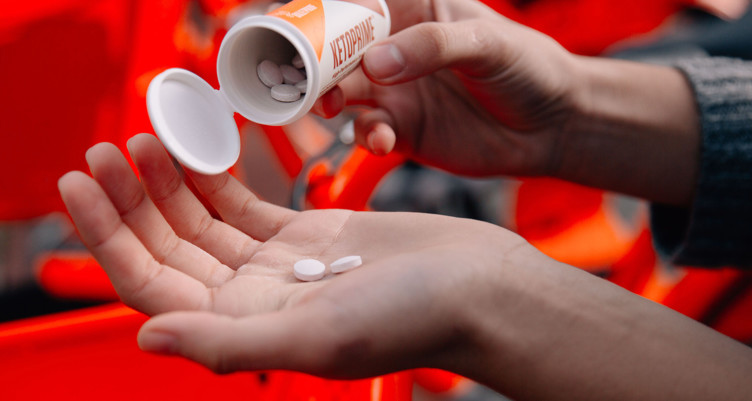
Oxaloacetate is the last product of the Krebs Cycle (remember this from high school health?). The Krebs Cycle is the sequence of reactions that generate energy within every cell of your body.
Animal research shows that oxaloacetate may cause the cell to mimic a calorie-restricted state and create more mitochondria. [9][10] For those who didn’t pay attention in biology class, mitochondria is key to energy production.
Essentially, oxaloacetate supports healthy cells that produce clean energy. For one of the best keto supplements that features this ingredient, try Bulletproof KetoPrime. It comes in lozenge form, which makes it easy to take when you need a boost.
The bottom line: Take one KetoPrime lozenge up to five times a day to supercharge the cycle of energy production in every cell of your body.
Related: How to Do Intermittent Fasting for Weight Management
5. Magnesium
Magnesium is great for regulating glucose, boosting your immune system and increasing overall energy levels. [11] [12] However, because magnesium-rich foods like beans and fruits are a no-no on keto, you could experience a deficiency of this key mineral. Adding a magnesium supplement to your regimen can help you avoid potential problems, and it may even help curb some of the more common symptoms you may experience when transitioning to a keto diet, including cramps, insomnia and irritability.
Dose: 200-400 mg
Best form: Magnesium citrate or magnesium gluconate
6. Vegetable greens
Everyone knows that it’s important to have veggies in your diet, as they contain important vitamins and minerals. These plant compounds are important to keep your body functioning at its best. But, that doesn’t mean you have to chow down on a salad or side of broccoli to get your greens in.
Most commercially available veggie powders contain dehydrated and powdered wheatgrass, spirulina, spinach, kale and broccoli, so they definitely pack a nutritional punch. You can easily mix them into your morning protein shake and carry on with your day!
Keto supplements you can skip
There are a few keto supplements that aren’t particularly useful. Some have slick marketing without the science to back them up. You’re better off passing on these two keto supplements:
1. Ketone salts
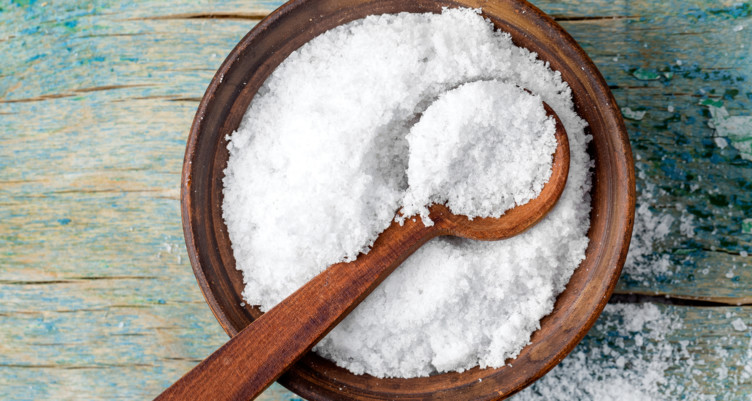
Ketone salts like sodium beta-hydroxybutyrate (BHB) seem impressive on the surface, especially if you measure your blood ketone levels. Ketone salts boost your blood ketones in a short amount of time, making them appear to put you in deep ketosis.
However, just because you have ketones in your blood doesn’t mean you’re actually using them. The issue with ketone salts is that they’re a racemic mixture. That means they’re a 50-50 mix of molecules (called the D form and the L form) that are mirror images of each other.
Humans only utilize the D form of ketone salts. The L form shows up in the blood as a ketone, but you don’t actually use it.[13]
In an episode of the Bulletproof Radio podcast, Dr. Richard Veech, one of the leading ketosis biochemists in the world, explains the issue with ketone salts. “The only ketone that’s effective is the D-form,” Veech says. “The L-form is completely different. It’s metabolized in beta-oxidation, which actually makes it harmful. It’s dumb, convenience manufacturing. It’s cheaper to use the racemic salt, but the effects are not only inaccurate, but could be harmful.”
Meanwhile, your body breaks down Brain Octane MCT oil into ketones that you can actually use. For the biggest return on your keto supplements, you’re best off avoiding ketone salts.
2. Emulsified MCT oil

Emulsified MCT oil is weaker than normal MCT oil. It’s also a good example of clever marketing without any substance behind it. As the graph above showed, most MCT oils (except C8 and C10) won’t increase your ketones by a meaningful amount, especially if the MCT oil contains lauric acid.
Sometimes called keto coffee creamers, emulsified MCT oil contains an emulsifier that allows it to mix easily into liquids. While that’s convenient, it means you aren’t getting as many MCTs per serving. You also have to double-check the ingredients list to see what else is in your bottle. What type of MCT is it made with? Are there any other additives, like syrups or flavorings, that might kick you out of ketosis?
If you want the biggest benefits from the keto diet, pass on emulsified MCT oil and get Brain Octane MCT oil instead.
Takeaways on the best keto supplements
Following the keto diet means it’s more difficult to get the nutrients you need to keep your body functioning optimally, so adding supplements can help keep you at your best. There are a lot of so-called keto diet supplements on the market today, and while some are helpful, there are many you just don’t need.
Consider adding electrolyte supplements, MCT oil, folate and oxaloacetate to get the most out of your keto diet, but steer clear of keto salts and emulsified MCT oil. Be sure to consult with your health care provider before adding any new supplements to your wellness regimen.
Sign up for early access to sales, product launches, the latest Bulletproof news and more!







